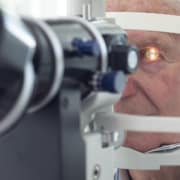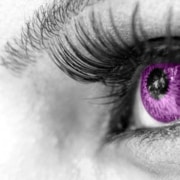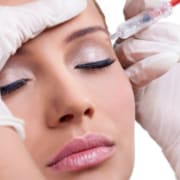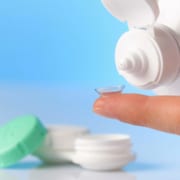Give the Valentine’s Day Gift of the Century With LASIK

What Is LASIK Surgery?
Unlike traditional LASIK surgery, Dr. Jeffrey Maehara performs bladeless LASIK Surgery which is a faster and equally as effective surgical procedure. With traditional LASIK Surgery, a small blade is used to help shave off and reshape the cornea. However, with bladeless LASIK surgery, a variety of lasers will be used to do the same thing— which means less time and a lower chance of error.
What Are the Results Like?
The best part about LASIK eye surgery is the fact that your loved one’s vision will be restored to perfection after recovering from the actual surgery itself. And who doesn’t want to have perfect vision?
How Can It Be a Surprise?
Because we can’t perform bladeless LASIK surgery without conducting a consultation beforehand, you aren’t going to be able to fully surprise your loved one on Valentine’s Day. You can, however, schedule their consultation appointment for Valentine’s Day so that we can get the ball rolling sooner than later.
Get the biggest hug and kiss from your Valentine this year and give them a gift that they will never forget: LASIK eye surgery. If you would like to learn more about this procedure or other eye procedures, contact Dr. Jeffrey Maehara today and schedule a consultation appointment.



 The New Year is all about reinventing yourself and setting goals that you hope to achieve. As one way to reinvent yourself, many people like to make cosmetic changes to their appearance by lightening their hair color or wearing colored contact lenses. As a fun way to change up your eye color, colored contact lenses are popular amongst every age group. However, did you know that colored contact lenses can cause blindness or eye injuries like ulcers? Read on to learn more.
The New Year is all about reinventing yourself and setting goals that you hope to achieve. As one way to reinvent yourself, many people like to make cosmetic changes to their appearance by lightening their hair color or wearing colored contact lenses. As a fun way to change up your eye color, colored contact lenses are popular amongst every age group. However, did you know that colored contact lenses can cause blindness or eye injuries like ulcers? Read on to learn more.
 With the holidays in full swing, if you haven’t yet started your holiday shopping, you need to jump on it so that you can get everyone in your life something that they will love and remember. As one of the hardest people to shop for, make sure that you get your spouse something they will thank you for and not hold over your head during your next big argument. Luckily, Dr. Jeffrey Maehara’s office has several unique gifts that you can give to your spouse that they will praise you for.
With the holidays in full swing, if you haven’t yet started your holiday shopping, you need to jump on it so that you can get everyone in your life something that they will love and remember. As one of the hardest people to shop for, make sure that you get your spouse something they will thank you for and not hold over your head during your next big argument. Luckily, Dr. Jeffrey Maehara’s office has several unique gifts that you can give to your spouse that they will praise you for.


 Unfortunately, as much as we hope and pray for a magic pill or spell that will make us never age, doctors are still working on it. As one of the biggest signs of aging, your vision will start to decline and you will likely start to need a pair of reading glasses to read the labels at the grocery store. Additionally, the lines around your eyes will start to deepen and you may start to understand the true meaning of crows feet. However, Dr. Jeffrey Maehara specializes in several treatment options that can help you to take care of your vision and the wrinkles around your eyes with Lasik and Botox. Read on to learn more.
Unfortunately, as much as we hope and pray for a magic pill or spell that will make us never age, doctors are still working on it. As one of the biggest signs of aging, your vision will start to decline and you will likely start to need a pair of reading glasses to read the labels at the grocery store. Additionally, the lines around your eyes will start to deepen and you may start to understand the true meaning of crows feet. However, Dr. Jeffrey Maehara specializes in several treatment options that can help you to take care of your vision and the wrinkles around your eyes with Lasik and Botox. Read on to learn more.


 Taking care of glasses as an adult can sometimes be a bit iffy, however, getting your child to take care of their glasses is a whole other process. As your child gets used to not only getting into the habit of wearing their glasses everyday, your child also needs to get into the habit of taking care of their eyeglasses everyday. From placing them in their proper case to taking precautions before taking sports, this article will discuss a few of the ways you can teach your child to care for their glasses.
Taking care of glasses as an adult can sometimes be a bit iffy, however, getting your child to take care of their glasses is a whole other process. As your child gets used to not only getting into the habit of wearing their glasses everyday, your child also needs to get into the habit of taking care of their eyeglasses everyday. From placing them in their proper case to taking precautions before taking sports, this article will discuss a few of the ways you can teach your child to care for their glasses.




